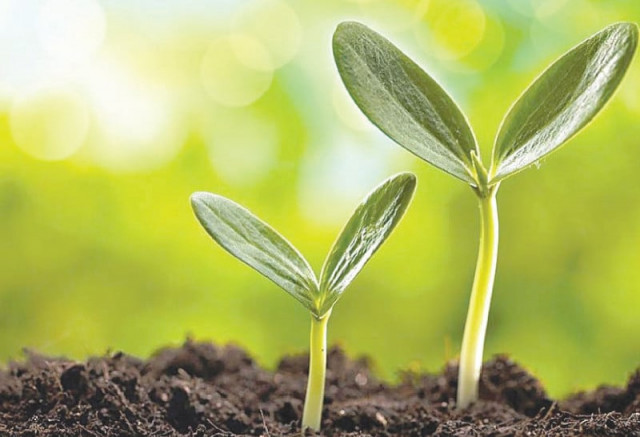Digital farm support termed vital for sustainability
Experts highlight utility against wastage of crops, enhancing production

Digital farming is imperative to re-vitalize agricultural growth with the global agricultural economies rapidly transforming to digitalization, sustenance for developing economies is becoming a challenge especially when an economy endeavors to survive with old modes of farming.
Pakistan is one among such economies where agriculture contributes 24 percent to the Gross Domestic Product (GDP) and 37.4 employment opportunities but the majority of its farmers are still oblivious to the latest farming techniques. According to the Economic Survey 2023-24, Pakistan produced 31.4 million tons of wheat, 9.9 million tons of rice, 9.8 million tons of maize, 87.6 million tons of sugarcane, 10.223 million bales of cotton production, and 2,090 tons of mango production. Therefore, digital farming is imperative to re-vitalize agricultural growth to fully benefit from the countrys’ arable land and water resources.
Although the government has prepared a comprehensive National Action Plan for agriculture modernization through capacity building and introducing agrarian technology extension. Yet our farmers especially the small growers are shying away from modern technologies due to the cost of adoption, access to technology, and lack of awareness. "If farmers adopt precision agriculture, digitalization of farm data, and value addition, it can help revitalize agricultural growth with minimum input cost helping small growers in mitigating financial impact," stated Spokesman of Ayub Agricultural Research Institute (AARI). "A simple example is that we have bumper potato production every year, but still we import potato chips."
At a time when the world nations, after digitalization of their agricultural sector, are now fast adopting Artificial Intelligence (AI), we still live in old ages using manual and old techniques of farming." Our farming practices are decades old. Only 10 to 15 percent progressive farmers are applying the latest techniques and technologies and their yield is better than other farmers," stated Dr Saqib Ali Associate Professor, University of Agriculture Faisalabad (UAF). "Bumper crop is based on three factors; high quality disease resistant seed, use of latest technology and efficient use of plantation, irrigation water, and fertilizers." He said a common farmer can't plant the required number of plants in an acre and evaluate the germination of seeds daily without using digital technology. Then there is the use of the modern technique of drip irrigation that saves water and reduces the cost of production.
Use of technology can also keep the policymakers abreast of facts and figures about supply and demand of the commodities in local and international markets as well as the changing dynamics of farming." Digitization can also help check unnecessary wastage of our crops and help farmers enhance their production by 10 percent by using pre and post harvesting modern techniques," Dr Saqib informed. "Pest scouting has become an old and redundant practice. The cam can be installed to monitor crops around the clock and any pest activity can be identified to help farmers control diseases with minimum cost and loss of crop."
"A better future for Pakistan is directly linked to digitalization and Artificial Intelligence (AI) in different sectors including agriculture," remarked President Faisalabad Chamber of Commerce & Industry (FCCI) Dr Khurram Tariq. He informed that FCCI has already launched "Cyberabad" - a project to transform Faisalabad into a hi-tech city by using modern techniques including Artificial Intelligence (AI) in different areas of the economy including agriculture.


















COMMENTS
Comments are moderated and generally will be posted if they are on-topic and not abusive.
For more information, please see our Comments FAQ